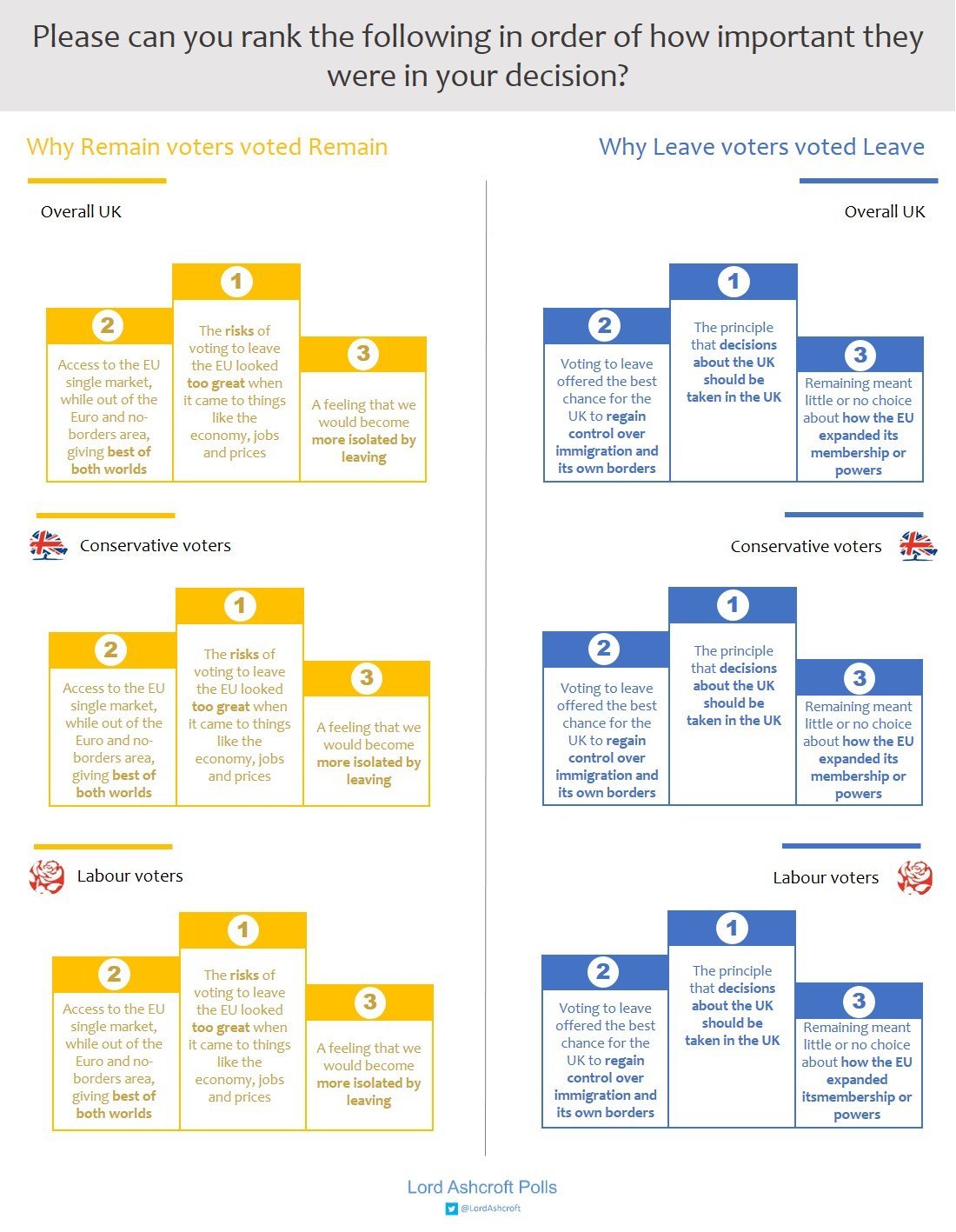Adorno said:
I could be wrong, of course. But that's how it looks from beyond the North Sea.
I think the fact that immigration is a touchy topic meant that it got more mention than it deserved in the media, and it is a fun stereotype to lampoon for comedians (one of my favourite comedians, Stewart Lee, has done it quite a bit). Anyone who I've spoken to about it who was thinking about voting, or
did vote for leaving, talked only of the country not having voted for the political union that has developed over the decades. People like my parents, who changed their mind after talking to me and my siblings, were already young adults when the UK went into the European Common whatever it was back then, and it's totally changed now. I don't think immigration was mentioned by either side. The few Brexiteers I've heard talk about it since always mention the same things; didn't vote for this political union, we were just meant to be going into a simple economic union, corruption in the EU, much of the country being forgotten about by European and national Government etc. That last point is probably more common in the north actually, because feeling less favoured by our Government than the south has always been a complaint, but it's also the sort of thing one heard before and after the election in vox-pops all over the country.
Besides which, I don't think Brexit really has
such a strong a north-south correlation. Yes there were more of the strongly leave areas in the north, but there were strong ones in the south too. I just googled a bit and of the top five leaver constituencies, two were in Lincolnshire (that stretch of east coast north of East Anglia), two were in Essex and one in Norfolk (going by stats in a BBC article):
https://www.bbc.co.uk/news/uk-politics-36616028. Even London as a whole was 40% leave! If immigration had been the main reason for voting leave, how does one explain almost half of London voting for it? It was a close run thing nationally, remember. As an interesting side note, according to these stats Scotland was the region with the lowest leave vote at 38%.
Calradianın Bilgesi said:
I haven't seen an analysis of exit poll or panel data on individual level, but on regional level it looks like in Remainer constituencies Conservatives and Labour voters switched to Libdems and SNP, whereas in Brexiter regions Labour voters switched to Conservatives.
I voted Lib Dem and, though I didn't expect them to come close to winning, had hoped they would do far better than they did. I was rather disappointed actually; they are the one party that were brave enough to commit to stopping Brexit, and I really admire them for that, yet again people don't dare to do anything different and vote mostly for the same two parties, even though they both look like disasters. Corbyn dithered to the last, fence sitting before dangling a leg over one side at the last minute. Boris is a minor league Trump in terms of embarassment and dishonesty, a man whose only ambition and talent was to get himself in power, not to do anything worthwhile once he got there, and in any case the Tories have sunk to new lows over the past decade. The Lib Dems were our one hope of reversing Brexit, and getting someone in who was a decent person untainted by indecision and things like the never ending anti-Semitism accusations that Labour is blighted by under Corbyn. I don't know if things would have been radically different if we had an actual every-vote-counts system rather than number of seats, but it might have done simply because of all the tactical voting that goes on due to the current system.

















